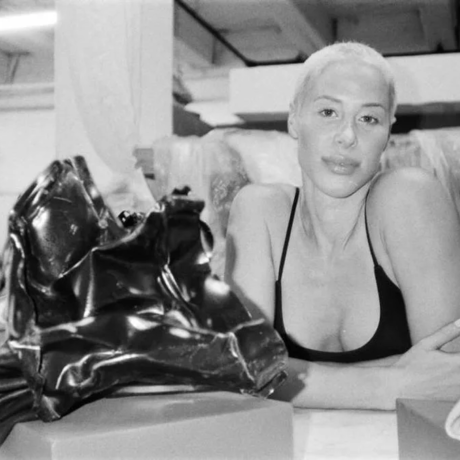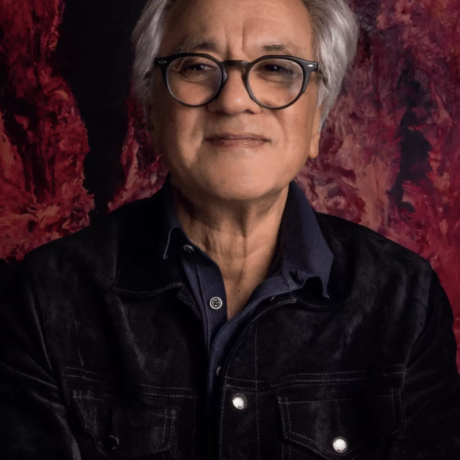
“You’ve changed.” It’s a sentiment that is rarely easy to accept, but I found it particularly bruising when I heard it from an old friend at the age of twenty. I’d just finished my first year of university, and was adamant that it wouldn’t interfere with who I was—or who I understood myself to be. I was still the girl who stayed out late and fought with her mother; who cut her own fringe and watched gross-out horror films. I saw myself as fixed or fully-formed, and held on as tightly as I could to that perception of my place in the world.
Of course, I had changed. I realize now that I wasn’t so much scared of evolving as losing who I once had been. I was fixated on the idea of my “authentic” self. The desire for authenticity is a powerful social force, and one that is particularly pervasive in the creative industry. Artists, writers and designers are expected to find their own voice if they are to stand out within an already crowded field. They must carve out space for themselves by bringing their unique perspective to the fore.
Galleries don’t just sell artworks; they sell the stories behind them. In an art market driven by intangible and highly subjective forces, there is an intense focus on the integrity of creation. From the stock market to data mining to astrology apps, our world is structured around systems of belief. In a society built on uncertainty and speculation, it is hardly surprising that our natural impulse is to seek the reassurance of an authentic truth.
“The desire for authenticity is a powerful social force, and one that is particularly pervasive in the creative industry”
What, then, does it mean to betray that authentic sense of oneself? The accusation of “selling out” is a loaded one, and is often levelled at those who work in the business of arts and entertainment. It makes plain that financial interest has trumped artistic integrity, and carries with it the suggestion that something of their personal truth has been lost in the process. A sellout is someone who has let go of who they really are.
The question of selling out was brought to the fore in a recent interview with American food writer Alison Roman, which subsequently went viral. In it, she attacked Marie Kondo (the hugely popular author of The Life-Changing Magic of Tidying Up) for releasing a line of home products. “The idea that when Marie Kondo decided to capitalize on her fame and make stuff that you can buy, that is completely antithetical to everything she’s ever taught you,” Roman told the New Consumer. “I’m like, damn, bitch, you fucking just sold out immediately! Someone’s like ‘you should make stuff,’ and she’s like, ‘okay, slap my name on it, I don’t give a shit!’”
Roman was rightly criticized for her decision to single out Kondo, a Japanese woman, alongside Chrissy Teigen (who is also Asian) for reproach. But her distaste at them “selling out” speaks volumes about a deeper snobbery that dictates right from wrong when it comes to money, power and perceived truth. For many, there is an ingrained shame in talking about money, as if an interest in earning power is something that ought to be hidden from view. How often do we find out how much our friends or peers really make?
“Selling out could be seen as a byword for scaling up or diversifying, but it is most often meant as a form of betrayal”
Selling out could be seen as a byword for scaling up or diversifying, but it is most often meant as a form of betrayal. Commercial and creative interests don’t always align—a clash that requires careful compromise and the weighing up of personal boundaries. Some can afford to turn down a branded partnership or sponsored project, while others don’t have the luxury of choice. Some can find success purely offline, sharing their work through personal networks of family friends and school peers, while others must relentlessly self-promote through social media to achieve any sort of visibility. There is a value judgment that is frequently placed on one over the other, but it is cloaked in the type of privilege that cannot be earned through hard work alone.
It is that same snobbery which celebrates exclusivity over inclusion in the art world, and which conspires to keep prices high on artworks by restricting their availability. Artists are discouraged from selling works or editions directly to their audience, in favour of their gallery working behind the scenes to quietly increase their market value. Consider how the prices of artworks are almost never made publicly visible in a commercial gallery, as if the mere mention of money might somehow taint their worth.
Inevitably, it is only the richest who can avoid talking about money. In a society driven by the forces of capitalism, the rest of us are destined to be judged as sellouts at some point in our lives. I am still seeking my most authentic self, but I no longer define it by the standards of those around me. Change doesn’t have to mean losing who you are. Instead, it can be the confidence to believe in a different future.
Are We There Yet is a fortnightly column by Louise Benson. Top image © Osamu Kobayashi





